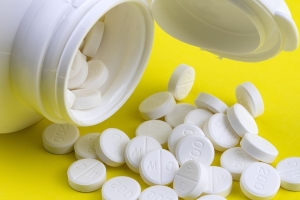Álcool e Cirrose Hepática
Julho 02, 2021Você sabia que a cirrose hepática é uma das principais causas de morte relacionadas ao uso de álcool entre 2010 e 2018? Assista a esse vídeo e entenda melhor os impactos da bebida alcoólica em seu fígado e como evitar a doença.
Are alcoholism medications safe for people with cirrhosis?
Junho 10, 2024Are alcoholism medications safe for people with cirrhosis?
A recent study analyzed the use of medications for alcohol use disorder in patients with cirrhosis, as the safety and effectiveness of these medications in this population is scarce.
A recent study analyzed the use of medications to promote alcohol abstinence in patients with alcohol dependence and cirrhosis [1]. Through research encompassing several studies, it was possible to assess whether the medications reduced consumption or promoted abstinence and whether there was safety in terms of side effects for people with liver problems.
The liver, the main organ responsible for alcohol metabolism, suffers damage due to excessive consumption, characterizing alcoholic liver disease. This can range from asymptomatic changes, such as fatty liver (hepatic steatosis), to alcoholic hepatitis and alcoholic cirrhosis. Early diagnosis and abstinence are fundamental in the treatment strategy for alcoholic liver disease, especially in the early stages, where there is still no irreversible damage and liver decompensation [2].
The presence of alcoholic cirrhosis and its complications can alter the action of medications, impacting the safety of use and increasing side effects. Therefore, the characteristics of the medication and the way it is administered must always be considered in cirrhotic patients.
Since clinical treatment options are limited to improve liver function in patients with cirrhosis, alcohol abstinence is the most important and proven therapeutic intervention [3]. However, many patients have difficulty achieving abstinence. Medications approved for alcohol use disorder include: naltrexone, which helps reduce excessive alcohol consumption; acamprosate, which facilitates the maintenance of abstinence; and disulfiram, which blocks the body's metabolism of alcohol, causing unpleasant symptoms such as nausea and redness of the skin. Other medications, such as baclofen, gabapentin, sertraline and topiramate, are also studied [4]. Among them, only baclofen has been shown to be safe and effective in maintaining abstinence in individuals with liver disease [5].
Seeking to analyze the side effects and effectiveness of medications in patients with cirrhosis or liver disease, even with limitations due to the low level of studies found, the study indicated that the use of medications can increase the probability of alcohol abstinence by 32% compared to placebo or standard treatment. Furthermore, the safety profile of these medications was considered adequate in most studies, suggesting that they may be an alternative for the treatment of patients with alcoholic cirrhosis. However, it is important to highlight the need for more research, especially in patients with advanced liver disease, to confirm these findings and evaluate the safety of these medications in this vulnerable population [1].
Therefore, if you or someone you know is dealing with alcohol use disorder and cirrhosis, it is essential to follow medical recommendations. Appropriate treatment can significantly increase quality of life and survival.
References:
- Gratacós-Ginès, J., Bruguera, P., Pérez-Guasch, M., López-Lazcano, A., Borràs, R., Hernández-Évole, H., Pons-Cabrera, M. T., Lligoña, A., Bataller, R., Ginès, P., López-Pelayo, H., & Pose, E. (2024). Medications for alcohol use disorder promote abstinence in alcohol-associated cirrhosis: Results from a systematic review and meta-analysis. Hepatology (Baltimore, Md.), 79(2), 368–379. https://doi.org/10.1097/HEP.0000000000000570
- Addolorato G., Mirijello A., Barrio P., Gual A. Treatment of alcohol use disorders in patients with alcoholic liver disease. J. Hepatol. 2016;65:618–630. doi: 10.1016/j.jhep.2016.04.029.
- O'Shea, R. S., Dasarathy, S., McCullough, A. J., Practice Guideline Committee of the American Association for the Study of Liver Diseases, & Practice Parameters Committee of the American College of Gastroenterology (2010). Alcoholic liver disease. Hepatology (Baltimore, Md.), 51(1), 307–328. https://doi.org/10.1002/hep.23258
- Jonas, D. E., Amick, H. R., Feltner, C., Bobashev, G., Thomas, K., Wines, R., Kim, M. M., Shanahan, E., Gass, C. E., Rowe, C. J., & Garbutt, J. C. (2014). Pharmacotherapy for adults with alcohol use disorders in outpatient settings: a systematic review and meta-analysis. JAMA, 311(18), 1889–1900. https://doi.org/10.1001/jama.2014.3628
- Addolorato, G., Leggio, L., Ferrulli, A., Cardone, S., Vonghia, L., Mirijello, A., Abenavoli, L., D'Angelo, C., Caputo, F., Zambon, A., Haber, P. S., & Gasbarrini, G. (2007). Effectiveness and safety of baclofen for maintenance of alcohol abstinence in alcohol-dependent patients with liver cirrhosis: randomised, double-blind controlled study. Lancet (London, England), 370(9603), 1915–1922. https://doi.org/10.1016/S0140-6736(07)61814-5



